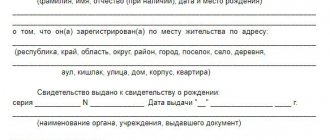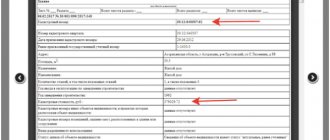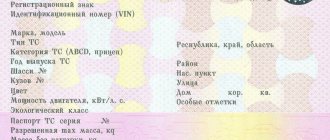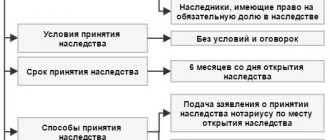Taking over property, as well as a number of responsibilities previously owned by the deceased, is the ultimate goal of the inheritance process. Inheritance is legal succession, which ultimately must be documented. It is this purpose that is served by the execution of a special document - a certificate of the right to inheritance, with the help of which inheritance is carried out in the future. The legislator establishes a certain format for the certificate of inheritance. We will look at a sample in the article.
Dear readers! The article talks about typical ways to resolve legal issues, but each case is individual. If you want to find out how to solve your particular problem , contact a consultant:
+7 (499) 938-81-90 (Moscow)
+7 (812) 467-32-77 (Saint Petersburg)
8 (800) 301-79-36 (Regions)
APPLICATIONS AND CALLS ARE ACCEPTED 24/7 and 7 days a week.
It's fast and FREE !
Concept and purpose
A certificate is a document identifying the heir who has submitted the relevant documents in the prescribed manner. That is, it is this document that contains information about the person who accepted the inheritance.
This is the direct purpose of the document. With its help, the heir has the opportunity to register property rights if registration is required by law. Also, the heir (or heirs, if there are several of them) using such a document can receive funds from the testator’s accounts or re-register the accounts in their own name.
A certificate is a document whose purpose is to designate the new owner of the estate, as well as to determine the person responsible for the duties of the deceased within the inherited property.
Who has the right to receive
Any heir can receive a certificate, regardless of whether he is an heir by law or by will.
If during the period for opening an inheritance no person applies to a notary with a will, then the right to inheritance is received by the heirs according to the law of the corresponding order. If there are no such heirs, then the heirs of the second one receive the right, and so on.
The heirs of any of the queues have the same rights, that is, they inherit the entire inheritance mass in equal shares. In this case, they bear joint responsibility. The testator's creditor can collect the debt from each person individually or from one or more persons.
Inheritance by law is received by heirs only if there are no heirs under the will, or they have not declared their rights within the period established by law.
Dates of issue
According to paragraph 1 of Art. 1163 of the Civil Code of the Russian Federation, a certificate is issued to heirs after the six-month period for entering into inheritance rights has expired. The heir will be able to receive it at any time, but only in the absence of legal disputes within the framework of the inheritance case.
The certificate can also be issued ahead of schedule, but under exceptional circumstances. For example, if there is a court decision on early entry into an inheritance, or the inheritance is carried out according to a will, and the list of persons indicated there has already declared their rights.
According to statistics, in most inheritance cases, a certificate is issued only six months after the death of the testator. This period is necessary so that all heirs have time to declare their inheritance rights.
In some cases, the issuance of a certificate is delayed for some period of time:
- If one of the heirs was not born within the established period.
- If there is a court decision to suspend the issuance of a certificate for certain reasons.
- Litigation is ongoing within the framework of an inheritance case.
This list of reasons, which is prescribed in Art. 1163 of the Civil Code of the Russian Federation is exhaustive and is not subject to an expansive interpretation.
If the six-month deadline for filing an application has expired, the heir loses the right to submit a petition for the issuance of a certificate to a notary. Even if he declares his desire to enter into an inheritance, the notary will legally refuse him.
The heir will have to go to court to restore the missed deadlines. But this will require a valid reason: illness, being outside the Russian Federation, etc.
The necessary conditions
The conditions for obtaining a certificate are:
- Opening an inheritance case.
- Availability of appropriate rights to receive inheritance.
- Submitting a corresponding application with a package of necessary documents to a notary.
Without complying with these conditions, it will be impossible to obtain a certificate. In this case, it is necessary that all conditions are met.
Read how shares are valued for inheritance in the article “How shares are valued when entering into an inheritance.” What is an inheritance division agreement can be found here.
Which statement to choose
The form of the application depends on the final position of the heir. A claimant to the testator's property may:
- Take your rights.
- Completely renounce the inheritance.
- Transfer property to another relative.
Each legal action is accompanied by the filing of a specific document. If the heir is interested in accepting the property, then he needs to submit a corresponding application.
Based on this document, the notary opens an inheritance case. Other heirs are also given 6 months to submit the necessary documents.
What is the deadline
It is necessary to submit documents and an application on the basis of which the corresponding document will be issued within six months from the day the inheritance was opened. In this case, you can obtain the certificate itself at any time.
The main condition is the expiration of the relevant period, that is, six months from the date of opening of the inheritance.
Issue date
In practice, the certificate is most often received by the heirs within a few weeks after the entry period expires. However, the legislator does not establish restrictions. The certificate can be obtained within an unlimited period. Obtaining a certificate is the legal right of the heirs, and not their obligation.
Where to contact
You can obtain a certificate by contacting a notary with the appropriate application at the place where the inheritance was opened. This can be done both by legal heirs and by testamentary heirs.
In a situation where the legal rights of the heir have been violated, you will first need to go to court to protect them. Moreover, if the certificate has not yet been issued at this time, then the court has the right to suspend the issuance of the certificate. If it has already been issued, it will lose its force if it is appealed.
Registration procedure
In order to obtain a certificate, you need to complete these steps:
- Make a visit to the notary for information about opening a case.
- Prepare an application.
- Submit an application by attaching the required documents.
- Receive a certificate upon completion of a period of six months from the day the inheritance was opened.
The notary carries out the following actions:
- Informing applicants about the order of inheritance.
- Opening a case.
- Checking information: inheritance, family ties, etc.
- Verification of the testator's property based on information provided by the heirs.
A certificate of inheritance will be issued if all actions have been completed both on the part of the heirs and on the part of the notary.
If there are violations on the part of the heirs, the notary will point them out and demand correction, but if on the part of the notary, then you can complain about his inaction to the notary chamber of the region, or to the court, if there are reasons to believe that there are violations in his actions.
What additional documents are required?
To obtain a certificate, you will need to submit an application to the notary, to which the following documents are attached:
- Any document that can confirm the identity of the applicant (most often a passport is used).
- Death certificate of the testator.
- Papers about property owned by the testator.
- Will or documents on relationship with the deceased.
If other documents are required, the notary will additionally request them.
Service cost
Upon receipt of the certificate, a state duty is paid, which is established by the Tax Code. The amount of such a duty will directly depend on the degree of relationship between the heir and the deceased and for the first two stages will be three tenths of a percent, and for all others - twice as much. It does not matter whether the property is inherited by will or by law.
In this case, the maximum amount of the duty will be equal to one hundred thousand rubles for categories of heirs paying three tenths of a percent and a million rubles for all others.
Obtaining a death certificate
Before applying for inheritance, a citizen must obtain a death certificate of the testator. The registry office is responsible for issuing this document. Relatives of the deceased must contact the department, which is located:
- at the place of last residence of the deceased;
- in the area where the organization that issued the death certificate is located;
- at the place of residence of the testator’s closest relatives;
- in the region where the body of the deceased was found.
Expert opinion
Soloviev Viktor Yurievich
Lawyer with 7 years of experience. Specializes in criminal law. Legal expert.
To obtain a certificate, the applicant must submit a death certificate to the registry office. If the fact of death was established through the court, then the basis for obtaining the document will be the court’s conclusion.
The registry office employee will also require the passport of the applicant, the deceased and papers confirming the existence of a family relationship between them. If the papers are submitted by an authorized representative of one of the heirs, then he is required to present a power of attorney.
Upon submission of a complete package of documents, the applicant receives a death certificate. As a rule, it is issued on the day of application.
What does it contain
The certificate is drawn up by a notary according to the established template, on a special form.
It must contain:
- Coat of arms of the Russian Federation.
- Indication of the place where the inheritance was opened.
- Details of the heir and testator.
- Notary details.
- Information about inherited property.
- Signature, notary details and certificate number in the register, as well as its seal.
The samples meet all established requirements.
Possible difficulties
The notary has the right to freeze the issuance of a document for a certain period of time if he has grounds for this. Such grounds include the absence of any documents, as well as doubts about the authenticity of the documents.
If a notary has doubts about any documents, he can order an examination to verify their authenticity.
If a third party goes to court, demanding protection of violated rights to inheritance, the court may suspend the process for a period of ten days. In addition, the court may direct the notary not to issue the certificate until a court decision is made.
The issuance of a certificate may also be suspended if the notary has information that the testator has an unborn child. Actions continue after the birth of the child.
When can a document be invalidated?
There is a legislative possibility of declaring a certificate invalid. To do this, the interested person must apply to the court.
You can count on a decision in favor of the applicant if:
- There are reasons to believe that the heir committed illegal actions when entering into inheritance.
- A third party has rights to the object transferred to the heir.
- A new heir appeared, whose rights were not taken into account.
A certificate of the right to inheritance may also be invalidated if it turns out that the person who previously filed an application to renounce the inheritance acted under coercion or threats.
How to correctly write an application for inheritance?
A probate purchase application refers to a document confirming the testator's desire to purchase property under a will.
At the same time, this document must be submitted in a timely manner. To draw up an application, take a sheet of paper in A-4 format. When drafting it, you must follow the rules for writing such official letters. A sample application can always be found at the notary, in addition, such a sample can be downloaded on the Internet, as well as at the end of this article.
The application for acceptance of inheritance must show:
- Detailed address of the notary's office, indicating the full name of the notary
- FULL NAME. the applicant, stating his residential address
This data is filled in in the upper right part of the sheet.
- Below, in the center of the line, fill in the name of the form and justification - “Application for acquisition of inheritance and...”
- Next, fill out the text of the application, which details the circumstances relating to the essence of the submitted form containing the information:
- about the deceased:
- Date of death.
- Place of residence.
- Other possible contenders.
- Grounds for inheritance:
- Will.
- According to the law.
If by law, then it is required to provide links to documents certifying the right to inheritance (marriage or birth certificate).
- A complete description of the inherited property.
- Requirement:
- Opening an inheritance case.
- Extract of certificate.
- Finally, the date of filling out the form and the signature of the testator are indicated.
Note. The application must be completed and submitted by the heir in person. A power of attorney is unacceptable in this situation.
In addition, you need to know that if there is more than one heir, then everyone must submit an application for inheritance.
If any of the heirs does not want to accept the inheritance, he is also obliged to submit a petition for refusal.
The legislative framework
The main points related to notarial actions, that is, the procedure for issuing, the form of the document, etc., are regulated by the “Fundamentals of the legislation of the Russian Federation on notaries.”
The Civil Code in the fifth section defines the main points in matters of inheritance, and the Civil Procedure Code regulates the procedure for going to court if such an appeal is necessary.
The Tax Code regulates the amount of duty that each heir is required to pay, regardless of the basis of inheritance or queue.
A certificate of inheritance is an important document that determines the heir’s right to inheritance property transferred to him from the testator. It is the certificate that secures him as an heir. It means that the heir has completed all the necessary procedures and meets the requirements according to which he could be recognized as an heir. The certificate serves as a document according to which the property is subsequently re-registered as the property of the testator and confirms his rights.
Procedure for assessing the market value of property
In the process of obtaining a certificate of inheritance, it is necessary to undergo a procedure for assessing the market value of the property. This is required to calculate the amount of state duty for issuing this document. The state duty is determined in accordance with the tariffs and rules contained in Art. 333.24 of the Internal Revenue Code.
Depending on the degree of relationship, the following rates are established for calculating state duty:
- for heirs of 1-2 stages , who are among the closest relatives (with the exception of grandparents), the state duty is calculated as 0.3% of the value of the inherited property (the maximum amount of the state duty is 100 thousand rubles);
- for other relatives - 0.6% of the value of the inherited property in the part that is due to this heir (but not more than 1 million rubles).
You can get an assessment of the value of property by contacting a specialized organization that is part of the SRO of appraisers. Payment for their services is made at the expense of the heirs or a specific heir by agreement between them.
In some cases, heirs will have to go to court to determine the fair distribution of costs for appraisal activities.
The assessment is made as of the date of death of the testator (based on clause 1 of Article 333.25 of the Tax Code of the Russian Federation). In relation to an inheritance such as real estate, the cadastral value indicated in the extract from the Unified State Register, or the market value, can be used as an assessment. The heirs have the right to determine for themselves on the basis of what value the state duty will be calculated: at the cadastral or market value.
If the heir has several documents assessing the value of the property, then the smallest value will be included in the calculations.
According to Art. 333.38 of the Tax Code, when inheriting certain property, heirs may be exempted from the obligation to pay state duty or provided with benefits.
Preferential status is granted to citizens with disabilities of groups 1 and 2 in the amount of at least 50% of the calculated state duty. When entering into an inheritance of citizens who lived together with the testator in the same living space, if they enter into an inheritance in relation to real estate, the heirs do not pay the state duty.
Also, state duty is not payable if deposits, insurance amounts, or royalties are inherited; property of a person killed in execution; when the heirs are minors, incapacitated and minor citizens.
In addition to the state fee, the heirs must pay a fee for the technical and legal work of the notary. This cost item is not regulated by law and is established by notary offices at their own discretion (subject to the limit established by the regional notary chamber). Therefore, fees for technical and legal work vary depending on the region and the tariffs of a particular notary.









